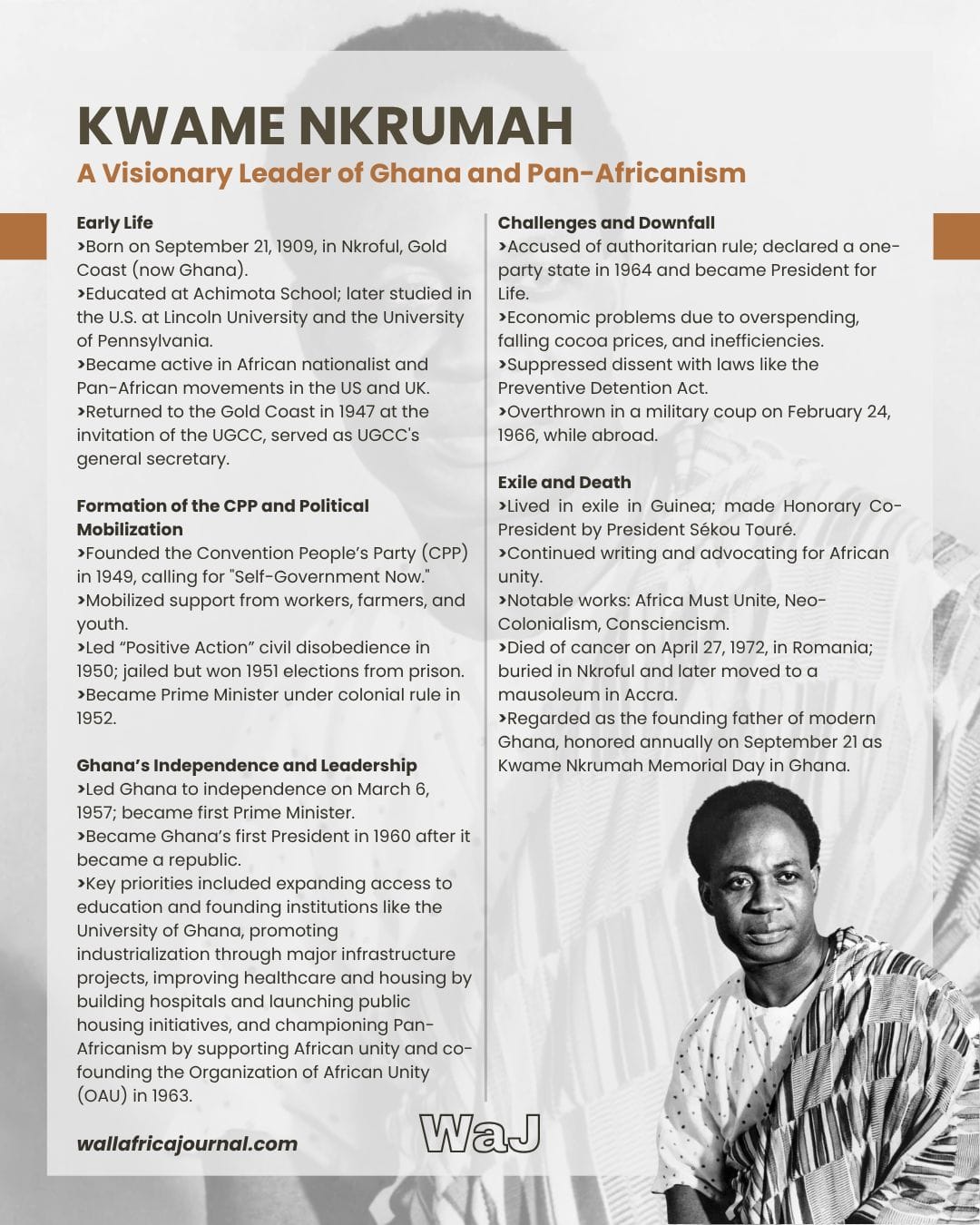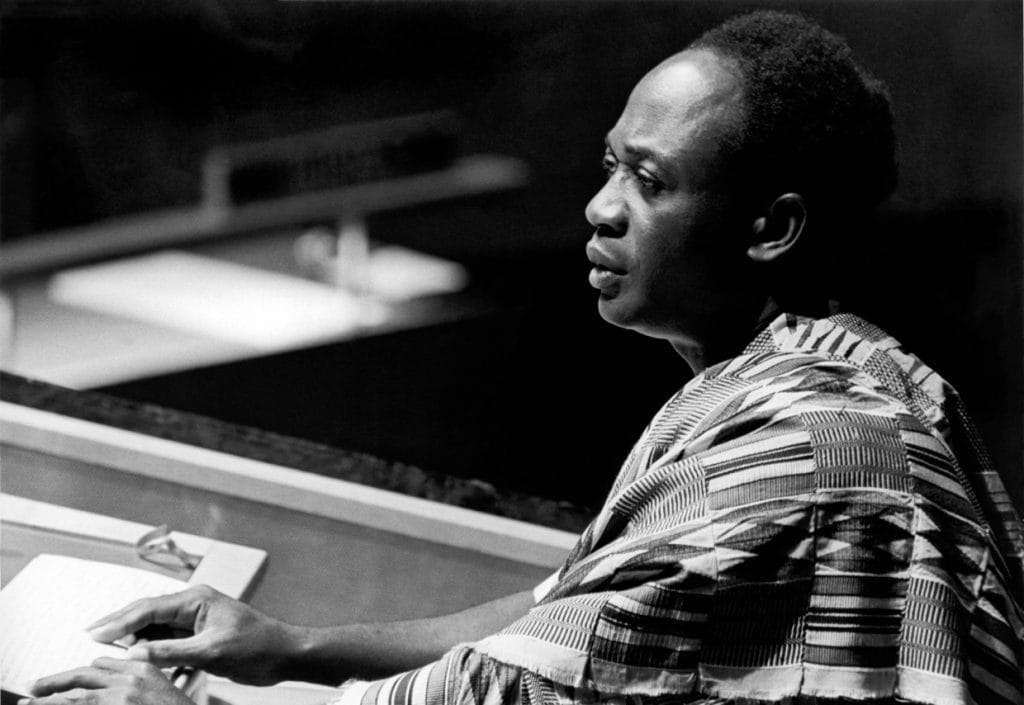
Kwame Nkrumah, born in 1909 in Nkroful, led Ghana to independence and became a leading voice for Pan-Africanism. Educated in the US and UK, he was influenced by socialist and anti-colonial thinkers. After returning to the Gold Coast in 1947, he split from the conservative UGCC to form the Convention People’s Party (CPP), championing immediate self-rule.
Through mass mobilization and civil disobedience, Nkrumah gained massive popular support and became Prime Minister in 1952. Ghana gained independence in 1957, and Nkrumah became its first President in 1960. He prioritized education, industrial development, health, housing, and African unity—playing a key role in founding the Organization of African Unity (OAU).
However, his rule turned authoritarian, with Ghana becoming a one-party state in 1964. Economic decline, political repression, and a growing personality cult led to his overthrow in a 1966 coup while abroad. He lived in exile in Guinea, continuing to write and promote African unity until his death in 1972.
Nkrumah is celebrated as a visionary who inspired anti-colonial movements, though his legacy is debated due to his authoritarian governance and economic struggles. Kwame Nkrumah remains a national hero in Ghana, honored each year on September 21.



